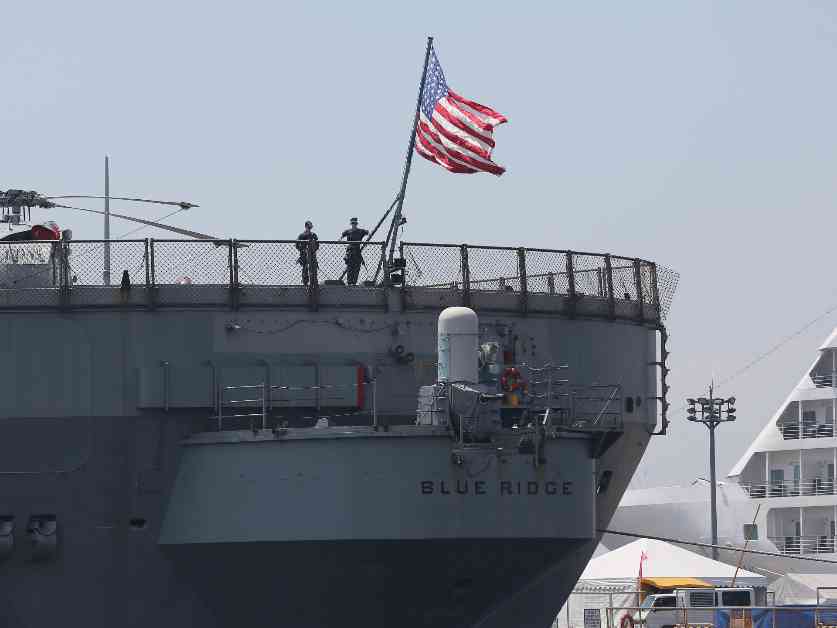Venezuela’s disputed election has sparked tensions with the US, resulting in the detention of a United States Navy sailor in the Latin American country. The sailor, who was reportedly on personal travel and not official government business, was detained by Venezuelan authorities, raising concerns among Pentagon officials. White House national security spokesperson John Kirby confirmed the detention, stating that Washington was working to gather more information about the situation.
The detention of the US sailor comes at a time when tensions between the US and Venezuela are running high. President Nicolas Maduro’s claims of victory in the July presidential race have been rejected by several countries, including the US and Argentina. In a show of support for Maduro’s opponent, Edmundo Gonzalez, these countries have recognized him as the rightful winner of the election.
Adding to the escalating tensions, US authorities recently seized a plane that was allegedly purchased for Maduro’s personal use, citing violations of sanctions imposed by Washington. Maduro’s government condemned the seizure as an act of piracy, further straining relations between the two countries. In response to the seizure, Venezuelan authorities issued an arrest warrant for Gonzalez, accusing him of conspiracy and other crimes. The US, along with other countries in the Americas, condemned the move as an attempt to suppress political opposition.
The detention of the US sailor in Venezuela is not an isolated incident. In recent years, several active US military members have been detained while abroad under various circumstances. For example, earlier this year, US Army soldier Gordon Black was arrested in Russia after traveling there to visit his girlfriend. Black was sentenced to three years and nine months in prison after his girlfriend accused him of theft. Despite being an active duty member of the army, he has been placed on a non-pay status.
In a more extreme case, Army Private Travis King fled to North Korea during a civilian tour of the Military Demarcation Line on the border with South Korea. Facing military disciplinary actions prior to his escape, King was detained by North Korean authorities and later released to the US. His lawyer recently announced that he would plead guilty to five charges, including desertion.
The US has also been involved in prisoner exchanges with Venezuela. In December, a close ally of Maduro’s, Alex Saab, was freed by US authorities in exchange for the release of 10 imprisoned US citizens and a fugitive defense contractor linked to a Pentagon bribery scandal. These exchanges highlight the complex diplomatic relationships between the US and Venezuela, especially in the midst of ongoing political tensions.
Overall, the detention of the US sailor in Venezuela is a troubling development that underscores the strained relations between the two countries. As the situation continues to unfold, it is crucial for both governments to engage in meaningful dialogue and diplomatic efforts to resolve the issue peacefully. The international community will be closely watching how this situation is handled and hoping for a peaceful resolution that respects the rights and well-being of all involved parties.



























